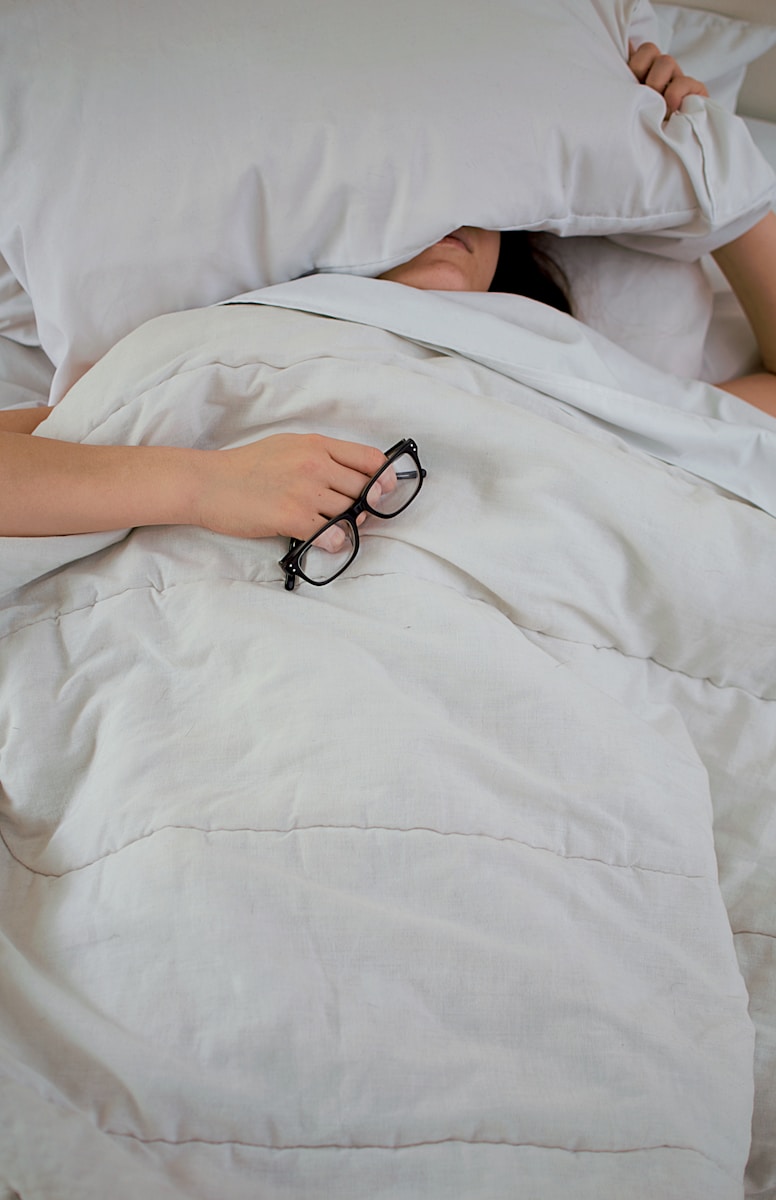Good sleep is foundational to our health, mood, and overall quality of life. Yet, many of us fall into habits that can significantly disrupt our sleep patterns without even realizing it. In this comprehensive guide, we’ll explore 10 common sleep mistakes you should avoid to ensure a restful night’s sleep tonight and beyond. By understanding and addressing these mistakes, you can improve your sleep quality, boost your energy levels during the day, and enhance your general well-being.
Understanding Sleep Basics
Before we dive into the common sleep mistakes, let’s establish a foundational understanding of sleep and why it’s so critical for our health.
The Science of Sleep
Sleep isn’t just a passive state of rest. It’s an active and complex process that is vital for our brain function, physical health, and emotional well-being. Our sleep is regulated by two main systems: the sleep-wake homeostasis, which reminds the body to sleep after a certain time, and the circadian rhythms, which regulate the timing of sleep based on 24-hour cycles of light and darkness.
During sleep, our bodies cycle through several stages, including light sleep, deep sleep, and REM (rapid eye movement) sleep. Each stage plays a crucial role in restoring and rejuvenating our bodies and brains.
How Much Sleep Do You Really Need?
The amount of sleep you need varies throughout your life. The National Sleep Foundation provides the following recommendations:
- Newborns (0-3 months): 14-17 hours each day
- Infants (4-11 months): 12-15 hours
- Toddlers (1-2 years): 11-14 hours
- Preschoolers (3-5 years): 10-13 hours
- School-age children (6-13 years): 9-11 hours
- Teenagers (14-17 years): 8-10 hours
- Young adults (18-25 years): 7-9 hours
- Adults (26-64 years): 7-9 hours
- Older adults (65+ years): 7-8 hours
Not getting enough sleep can lead to a range of health issues, including weakened immunity, weight gain, and increased risk of chronic diseases, as well as impacting mood and cognitive function.

The Top 10 Sleep Mistakes and How to Avoid Them
Getting a good night’s sleep is essential, but several common habits can interfere with our ability to fall asleep and stay asleep. Here’s a look at these mistakes and what you can do to avoid them.
Mistake 1: Inconsistent Sleep Schedule
Consistency is key when it comes to sleep. Going to bed and waking up at different times each day can throw off your body’s internal clock, making it harder to fall asleep and wake up feeling refreshed.
Tips to avoid this mistake:
- Set a regular bedtime and wake-up time, even on weekends. This helps regulate your body’s clock and can help you fall asleep and stay asleep for the night.
- Create a relaxing bedtime routine to signal your body it’s time to wind down. This could include reading, stretching, or meditating.
Mistake 2: Excessive Screen Time Before Bed
Screens emit blue light, which can interfere with melatonin production, the hormone that regulates sleep. Spending too much time on devices before bed can make it harder to fall asleep.
Tips to avoid this mistake:
- Limit screen time at least an hour before bed. Consider reading a book or listening to calming music instead.
- Use “night mode” on devices in the evening to reduce blue light exposure.
Mistake 3: Too Much Caffeine Late in the Day
Caffeine is a stimulant that can stay in your system for several hours, making it difficult to fall asleep if consumed late in the day.
Tips to avoid this mistake:
- Limit caffeine intake after 2 PM or adjust based on your sensitivity.
- Opt for herbal teas or decaffeinated beverages in the evening.
Mistake 4: Sleeping in a Disruptive Environment
Noise, light, and temperature can greatly affect sleep quality. An environment that’s too loud, bright, or not at an optimal temperature can make falling asleep and staying asleep challenging.
Tips to avoid this mistake:
- Use earplugs or a white noise machine to drown out disruptive sounds.
- Invest in blackout curtains or an eye mask to block out light.
- Keep your bedroom at a comfortable temperature, ideally between 60-67 degrees Fahrenheit (15.5-19.5 degrees Celsius).
Mistake 5: Skipping Wind-Down Time
Rushing from a busy day into bed without a period to relax can make it difficult to fall asleep. Your body needs time to transition from the day’s activities into sleep mode.
Tips to avoid this mistake:
- Develop a pre-sleep routine that helps you relax, such as taking a warm bath, reading, or practicing relaxation exercises.
- Avoid stimulating activities right before bed, such as intense exercise or work-related tasks.

Mistake 6: Eating Heavy Meals Close to Bedtime
Eating large or spicy meals late in the evening can lead to discomfort and indigestion, making it harder to fall asleep.
Tips to avoid this mistake:
- Have your last big meal at least 2-3 hours before bedtime. If you’re hungry later, opt for a light, easy-to-digest snack.
- Avoid foods that can disrupt sleep, like those high in fat or sugar, close to bedtime.
Mistake 7: Lack of Physical Activity
Regular physical activity can help you fall asleep faster and enjoy deeper sleep. However, timing is important as exercising too close to bedtime can be stimulating.
Tips to avoid this mistake:
- Incorporate regular exercise into your daily routine, but avoid vigorous activity within a few hours of bedtime.
- Consider gentle, relaxing exercises like yoga or stretching in the evening.
Mistake 8: Ignoring Sleep Disorders
If you have trouble sleeping regularly, it could be a sign of a sleep disorder, such as insomnia or sleep apnea.
Tips to avoid this mistake:
- Pay attention to your sleep patterns and note any ongoing issues.
- Consult with a healthcare provider if you suspect a sleep disorder. Early diagnosis and treatment can significantly improve your sleep quality.
Mistake 9: Overreliance on Sleep Aids
While sleep medications can be helpful for short-term issues, relying on them for long-term sleep management can lead to dependency and may mask underlying problems.
Tips to avoid this mistake:
- Use sleep aids sparingly and only under the guidance of a healthcare provider.
- Explore natural sleep-promoting practices, such as relaxation techniques and maintaining a sleep-friendly environment.
Mistake 10: Neglecting Mental Health
Stress, anxiety, and depression can all interfere with sleep. It’s important to address any mental health issues that could be affecting your sleep.
Tips to avoid this mistake:
- Practice stress-reducing techniques, such as mindfulness, meditation, or deep-breathing exercises, especially before bed.
- Seek professional help if you’re dealing with ongoing mental health issues that impact your sleep.
Avoiding these 10 common sleep mistakes can significantly improve your sleep quality and, as a result, your overall health and well-being. Remember, good sleep hygiene practices are key to a restful night’s sleep tonight and every night.

Implementing a Better Sleep Routine
Establishing a sleep routine that promotes restful sleep can make a significant difference in your energy levels, mood, and overall health. Here’s how to create and maintain a sleep routine that works for you.
Creating Your Personalized Sleep Plan
A personalized sleep plan takes into account your lifestyle, schedule, and specific sleep needs. Here’s how to start:
- Assess your current sleep habits. Keep a sleep diary for a week to track when you go to bed, when you wake up, and any sleep disturbances you experience.
- Identify areas for improvement. Based on your diary, note any habits that might be interfering with your sleep, like late-night snacking or screen time before bed.
- Set a consistent sleep schedule. Determine a realistic bedtime and wake-up time that allows for the recommended amount of sleep for your age group.
- Establish a relaxing bedtime routine. Choose activities that help you wind down, such as reading, taking a bath, or meditative exercises.
- Optimize your sleep environment. Make sure your bedroom is conducive to sleep—quiet, dark, and at a comfortable temperature.
- Gradually implement changes. Introduce changes slowly to avoid overwhelming yourself and to make these habits more sustainable.
Tools and Resources for Better Sleep
Several tools and resources can help you track and improve your sleep quality:
- Sleep tracking apps, such as Sleep Cycle or Pillow, can monitor your sleep patterns and provide insights into your sleep quality.
- White noise machines can help drown out disruptive sounds, creating a more consistent auditory environment conducive to sleep.
- Wearable sleep trackers, like Fitbit or Garmin, offer detailed sleep analysis and can help identify potential sleep disturbances.
- Guided meditation apps, such as Headspace or Calm, offer sleep meditations and stories to help you relax before bed.
- Educational resources, including books and websites, can provide further information on sleep science and improvement strategies. “Why We Sleep” by Matthew Walker is a highly recommended read for anyone looking to deepen their understanding of sleep.
Implementing a better sleep routine is not about quick fixes but about making gradual, sustainable changes to your lifestyle and habits. By taking the time to assess your sleep needs and adjust your habits accordingly, you can significantly improve your sleep quality and, by extension, your overall health and well-being.

Common Questions About Sleep Improvement
When embarking on a journey to improve sleep, many questions can arise. Here, we address some of the most common concerns to help you better understand what to expect and how to adjust your strategies for better sleep.
Can Napping Compensate for Poor Nighttime Sleep?
While napping can temporarily alleviate tiredness and improve alertness, it’s not a substitute for a good night’s sleep. Naps, especially if taken late in the day or for extended periods, can interfere with your nighttime sleep cycle.
Key points to consider:
- Short naps are best. Limit naps to 20-30 minutes to avoid entering deeper sleep stages that can leave you feeling groggy.
- Early afternoon is the ideal time for a nap, to minimize impact on nighttime sleep.
- Consistency is crucial. If you need to nap, try to do so at the same time each day.
How Long Does It Take to See Improvement in Sleep Quality?
Improvement in sleep quality can vary depending on individual factors such as the extent of changes made, consistency, and underlying health issues. Some people may notice improvements within a few days, while for others, it might take several weeks.
To enhance sleep quality:
- Be patient and consistent with your sleep routine and habits.
- Track your progress to identify what works for you and where adjustments may be needed.
- Consider professional help if you don’t see improvement despite making lifestyle changes, as underlying health issues may be affecting your sleep.
What If I Can’t Avoid Night Shifts or Irregular Hours?
Working night shifts or irregular hours can disrupt your circadian rhythm and sleep quality. However, there are strategies to mitigate these effects:
- Try to maintain a regular sleep schedule, even on your days off, to help stabilize your body’s internal clock.
- Create a dark, quiet, and comfortable sleep environment during the day. Blackout curtains and earplugs can be particularly helpful.
- Limit exposure to light before bedtime and use light therapy to help adjust your circadian rhythm if needed.
- Consult with a sleep specialist for personalized advice and strategies to cope with shift work or irregular hours.
Improving your sleep is a journey that involves understanding the common sleep mistakes you need to avoid tonight and making conscious changes to your sleep habits and environment. By implementing a personalized sleep plan and utilizing tools and resources designed to enhance sleep, you can improve your sleep quality and, consequently, your overall health and well-being.
Remember, while napping, adjusting to changes, and dealing with irregular work hours can pose challenges to achieving optimal sleep, there are strategies and resources available to help. Be patient with yourself, and don’t hesitate to seek professional guidance if needed.
We encourage you to take the first step towards better sleep tonight by reviewing the common sleep mistakes discussed in this blog post and beginning to implement the suggested improvements. Sweet dreams and here’s to waking up refreshed and ready to tackle the day ahead!
Feel free to share your experiences, tips, and questions in the comments below. And if you’re looking for more insights and advice on living a healthier, happier life, don’t forget to subscribe to our blog for regular updates.






